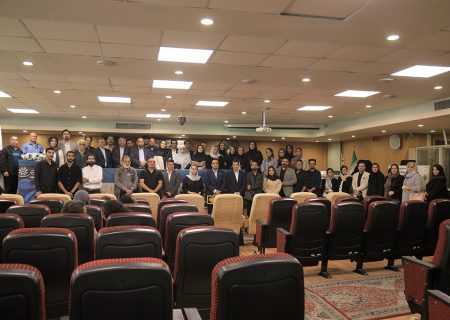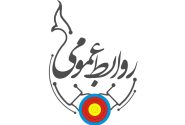نوع مقاله : مقاله پژوهشی
نویسندگان
- سیاوش صلواتیان ۱
- داتیس خواجه ئیان ۲
- محسن مسجد جامعی ۳
۱ دانشیار گروه مدیریت رسانه، دانشکده ارتباطات و رسانه، دانشگاه صداوسیما(نویسنده مسئول)، تهران، ایران
۲ دانشیار گروه مدیریت رسانه و ارتباطات کسب و کار، دانشکدگان مدیریت، دانشگاه تهران، تهران، ایران
۳ کارشناس ارشد مدیریت رسانه، دانشکدگان مدیریت ، دانشگاه تهران، تهران، ایران
چکیده
با رشد اینترنت، روزنامهها بهعنوان یکی از قدیمیترین و باثباتترین اشکال رسانهها در تطبیق کسبوکار خود با تغییرات محیطی دچار چالش شدند، بهطوری که شاهد کاهش چشمگیر در تیراژ و جذب آگهی بودند. در ایران، روزنامه همشهری بهعنوان یک مؤسسه و روزنامه باسابقه و پرتیراژ، متناسب با تغییر بازار رسانه و پلتفرمی شدن آن، هنوز نتوانسته مدل کسبوکار سنتی خود را بهصورت کامل متحول کند. هدف اصلی این پژوهش تحلیل کسبوکار و محیط مؤسسه مطبوعاتی همشهری است. بر این اساس، با ۱۹ نفر از کارشناسان و مدیران رسانهای و همچنین مدیران و کارشناسان فعلی و سابقِ تأثیرگذار در تدوین راهبردهای اقتصادی و مدل کسبوکار مؤسسه همشهری مصاحبه نیمهساختاریافته انجام شد. تحلیل مصاحبهها نیز به روش کدگذاری کیفی و طی دو مرحله کدگذاری باز و محوری انجام شد. برای جمعبندی یافتهها از ماتریس عوامل داخلی و خارجی سوات استفاده شد. یافتهها نشان میدهد مؤسسه همشهری در بُعد داخلی کسبوکار دارای نقاط ضعف بیشتری است. در بُعد محیط خارجی کسبوکار، مؤسسه همشهری نیز با تهدیدات بیشتری مواجه است. بر اساس تقاطع دو بُعد محیط داخلی و خارجی،راهبردهای تغییر پارادایم در مأموریت حرفهای مؤسسه همشهری از یک عرضهکننده محتوا به ارائهکننده خدمات ارزشافزوده محتوا و لزوم سرمایهگذاری روی داراییهای دیجیتال، پیشنهاد شد.
عنوان مقاله [English]
Strategic Analysis of the Press Organization’s Business ModelCase Study: Hamshahri Newspaper
نویسندگان [English]
- Siavash Salavatian ۱
- Datis Khajeheian ۲
- Mohsen Masjed Jamei ۳
۱ Associate Professor, Department of Media Management, School of Communication and Media, Sedavasima University (corresponding author), Tehran, Iran
۲ Associate Professor, Department of Media Management and Business Communication, School of Management, University of Tehran, Tehran, Iran.
۳ Master of Media Management, School of Management, University of Tehran, Tehran, Iran
چکیده [English]
With the growth of the Internet, newspapers, as one of the oldest and most stable forms of the media, were challenged in adapting their business to environmental changes so that they saw a significant drop in circulation and advertisements.
In Iran, Hamshahri daily, as an institution with a history and high circulation, has not yet been able to fully transform its traditional business model in accordance with the change of the media market and its platformization. The main purpose of this research is to analyze the business and environment of the Hamshahri Printing House. On this basis a semi-structured interview was conducted with 19 media experts and managers, as well as current and former managers and experts who were influential in developing the economic strategies and business model of Hamshahri Institution. Analysis of the interviews was also done by qualitative coding method and during two stages of open and axial coding. The matrix of internal and external factors of SWAT was used to summarize the findings. The findings show that the Hamshahri Institution has more weaknesses in the internal dimension of the business. In the dimension of the external business environment also, the Hamshahri Institution is facing more threats. Based on the intersection of the two dimensions of the internal and external environment, paradigm change strategies in the professional mission of Hamshahri Institution from a content supplier to a content value-added service provider and the need to invest in digital assets were proposed.
برای دانلود نسخه کامل مقاله کلیک کنید
مراجع
حاتمی، امیر؛ روشندل اربطانی، طاهر، شریفی، سید مهدی و قلیچ لی، بهروز (۱۳۹۸). بررسی نقش قابلیتهای فناوری در پیادهسازی موفق نوآوری باز در حوزه IPTV سازمان صداوسیمای جمهوری اسلامی ایران. رسانههای دیداری و شنیداری، ۱۳(۲۹)،۳۱ ـ ۵۲.
دهقانی، زلیخا؛ ابراهیمزاده، رضا، صادقی، مهرداد و هادی پیکانی، مهربان (۱۴۰۲). مدل اثربخشی تبلیغات بومی شده در شبکههای اجتماعی با رویکرد تحلیل متن. رسانه، ۳۴(۴)،۵۳ ـ ۶۹.
روشندل اربطانی، طاهر؛ دیواندری، علی و جانه، سارا (۱۳۹۰). بررسی اثرات همگرایی بر مدیریت رسانههای خبری چاپی مورد مطالعه روزنامه همشهری. مدیریت دولتی، ۳(۸)۵ ـ ۳۹.
فرهنگی، علیاکبر و خواجهئیان، داتیس (۱۳۹۴). مدیریت رسانه؛ رویکرد مدیریت زنجیره ارزش. تهران: انتشارات دانشگاه صداوسیما.
عطاران، جواد؛ دیواندری، علی و آدینف، حیات (۱۳۹۱). شناسایی عوامل مؤثر بر تحکیم بازار (تحقق مزیت رقابتی پایدار) خدمات بانکی در بانک ملت بر مبنای دیدگاه منبع محور. مدیریت بازرگانی، ۴(۲)، ۹۱ ـ ۱۱۲.
Doi: 10.22059/JIBM.2012.29185
Attaran, J., Divandari, A., & Adinov, H. (2012). A Resource Based View to Identifying the Influential Factors in Sustainable Competitive Advantage of Banking Service in Bank Mellat. Business Management, 4(2), 91-112. [In Persian] Doi: 10.22059/JIBM.2012.29185
Bardoel, J., & d’Haenens, L. (2008). Public service broadcasting in converging media modalities: Practices and reflections from the Netherlands. Convergence, 14(3), 351-360.
Dehghani, z., Ebrahimzadeh, R., Sadeghi, M., & Hadi Peykani, M. (2003). Designing an effective model of localized advertisements in social networks with a qualitative content analysis approach. Rasaneh, 34(4), 53-69.
Farhangi, A., & Khajeheian ,D. (2015). Media Management Value Chain Management Approach (IRIB Publisher). [In Persian]
Ha, L., & Chan-Olmsted, S. M. (2004). Cross-media use in electronic media: The role of cable television Web sites in cable television network branding and viewership. Broadcasting & Electronic Media, 48(4), 620-645.
Hatami, A., Arbatani R, T. Sharifi, M. & Ghilichli, B. (2019). The Model for Impact of Technology Capabilities on Successful Implementation Open Innovation in the Media Industry Case Study: IPTV in Islamic Republic of Iran Broadcasting. Audio-Visual Media, 3(29), 31-59. [In Persian]
Hernández-Serrano, M. J., Renés-Arellano, P., Graham, G., & Greenhill, A. (2017). From prosumer to prodesigner: participatory news consumption. Comunicar. Media Education Research Journal, 25(1).
Jantunen, A., Tarkiainen, A., Chari, S., & Oghazi, P. (2018). Dynamic capabilities, operational changes, and performance outcomes in the media industry. Business Research, 89, 251-257.
Kim, J. (2016). The platform business model and strategy: a dynamic analysis of the value chain and platform business (Doctoral dissertation, University of Manchester).
Küng, L. (2013). Innovation, technology and organisational change, Media innovations: A multidisciplinary study of change, 9-12.
Livingstone, S. (2005). Media audiences, interpreters, users, in: Gillespie, M. Media Audiences, Maidenhead, UK: Open University Press, 9-50.
Mierzejewska, B. I., Yim, D., Napoli, P. M., Lucas Jr, H. C., & Al-Hasan, A. (2017). Evaluating strategic approaches to competitive displacement: the case of the US newspaper industry. Media Economics, 30(1), 19-30.
Picard, R. G. (2004). Environmental and market changes driving strategic planning in media firms, Strategic responses to media market changes, 1-17.
Ritzer, G., Dean, P., & Jurgenson, N. (2012). The coming of age of the prosumer. American behavioral scientist, 56(4), 379-398.
Rothmann, W., & Koch, J. , (2014). Creativity in strategic lock-ins: The newspaper industry and the digital revolution. Technological forecasting and social change, 83, 66-83.
Roshandel Arbatani, T., Divandari, A., & Janeh, S.(2011). Investigating Convergence Effects on Management of Print News Media: Study of Hamshahri Newsrooms. Public Administration, 3(8), 39-56. [In Persian]





















